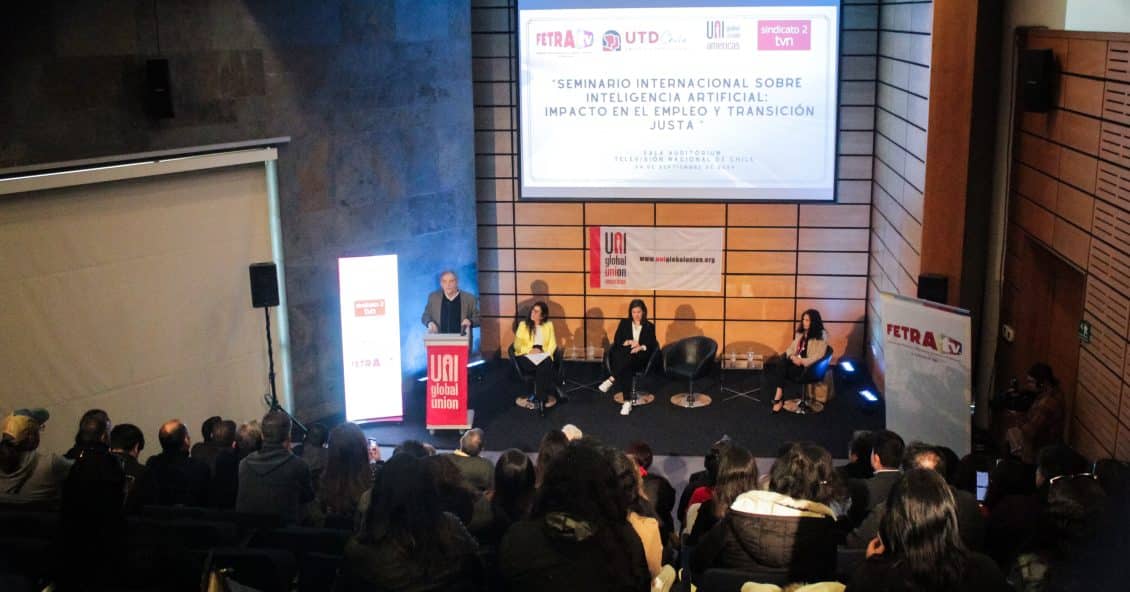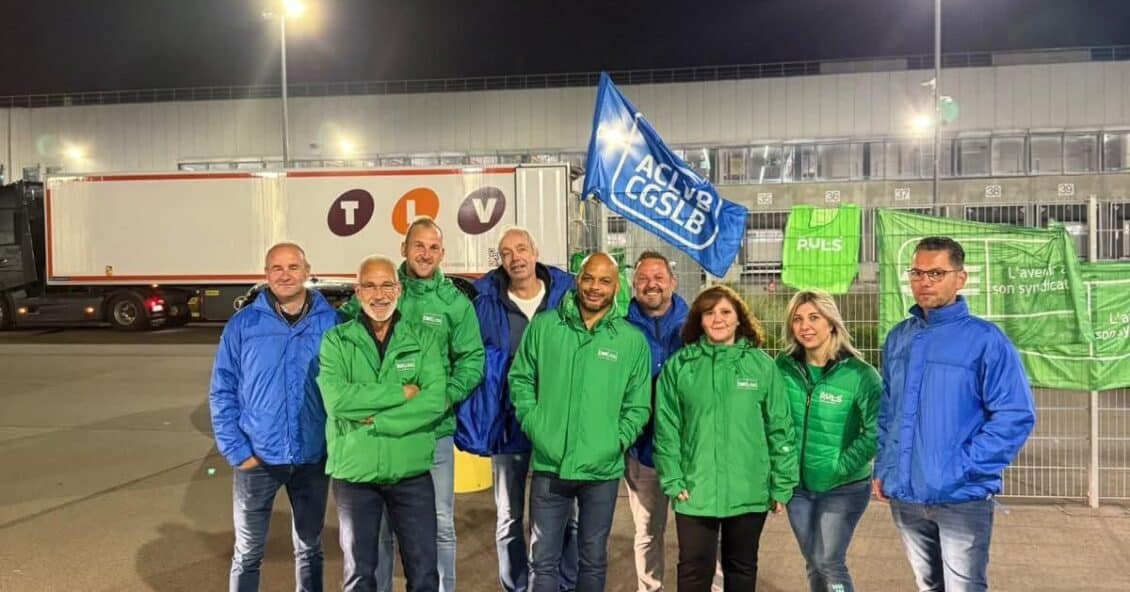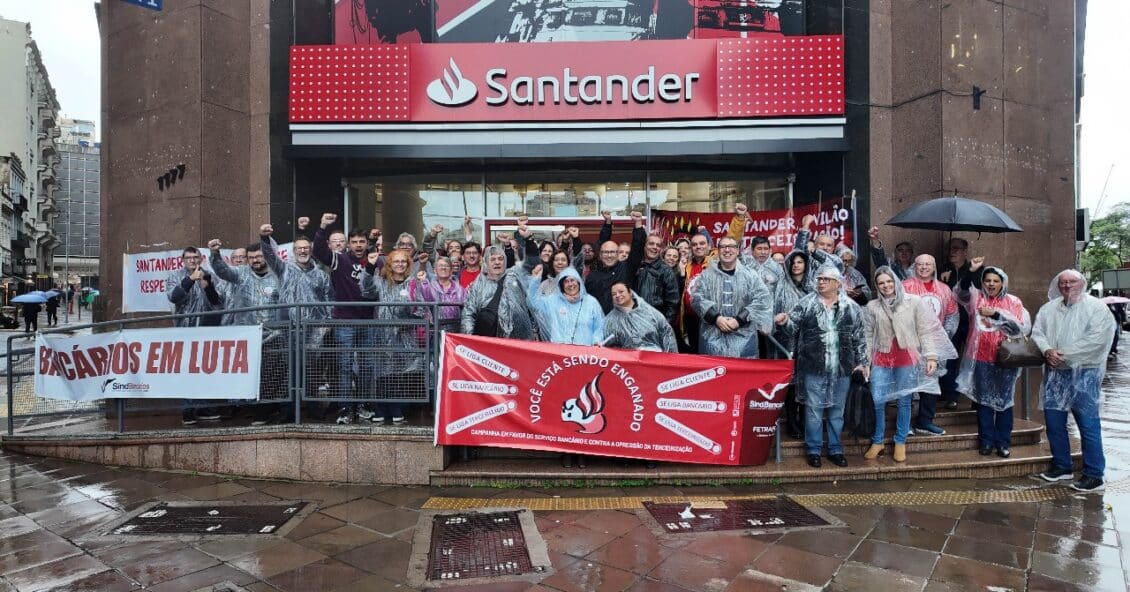UNI Americas and FETRA TV explore the impact of AI on jobs in Chile
09.09.24
On 4 September, unions from across sectors gathered in Chile to discuss the impact of artificial intelligence (AI) on employment at the “International Seminar on Artificial Intelligence, Employment Impact, and Just Technological Transition.” The event featured the Chilean Minister of Labour and Social Welfare Jeannette Jara, several speakers from UNI Global Union including Americas Regional Secretary Marcio Monzane, as well as experts from industry, government and academia.
As Lorena Castro, President of the National Federation of Television Channel Workers (FETRA TV), highlighted, the Chilean labour movement is spearheading the conversation on the emerging opportunities and threats to the workforce posed by AI.
“Workers are not opposed to the modernization brought by new technologies and AI, but we must protect employment and demand fair technological transitions that safeguard decent and dignified work,” she said.
UNI Americas’ Monzane noted that one of the motions passed at the UNI Global Union World Congress in Philadelphia in 2023 emphasized the need to push for fair technological transitions and digital transformation, ensuring shared benefits for all.
Monzane stressed the importance of countries enacting regulations that address AI’s impact on employment, its associated risks and ethical considerations. “We also advocate for workers to have a seat at the negotiating table within companies and organizations to discuss the uses and effects of digital technology and AI.”
Similarly, UNI Americas Regional Director of Media, Entertainment, and Arts (MEI) Lucía Lindner underscored the urgent need for public policies and regulatory laws to protect fundamental labour rights and working conditions.
The panel, “Artificial Intelligence (AI): Where Are We, Where Are We Going, and How Do We Protect Employment?” included national and international experts such as Guido Girardi, a former Chilean Senator, founder of Congreso Futuro and Executive Vice President of Fundación Encuentro del Futuro, along with Dr. Alexandra García, a neuroscientist from the Pontifical Catholic University of Chile and postdoctoral researcher at the National Centre for Artificial Intelligence (CENIA).
Johannes Studinger, global head of the UNI’s MEI sector, shared experiences related to unionization and organizing entertainment workers behind the scenes in the face of AI, as well as the collective bargaining process led by IATSE in the United States.
The seminar addressed several crucial topics, including the fair, safe, and transparent use of AI and new technologies, legal regulation, neurorights protection, the defence of employment, and the promotion of fair technological transitions with the involvement of workers. The event was organized by FETRA TV, UNI Américas, Unidad por Trabajo Digno and Union No. 2 which represents Televisión Nacional de Chile workers.
UNI Americas


